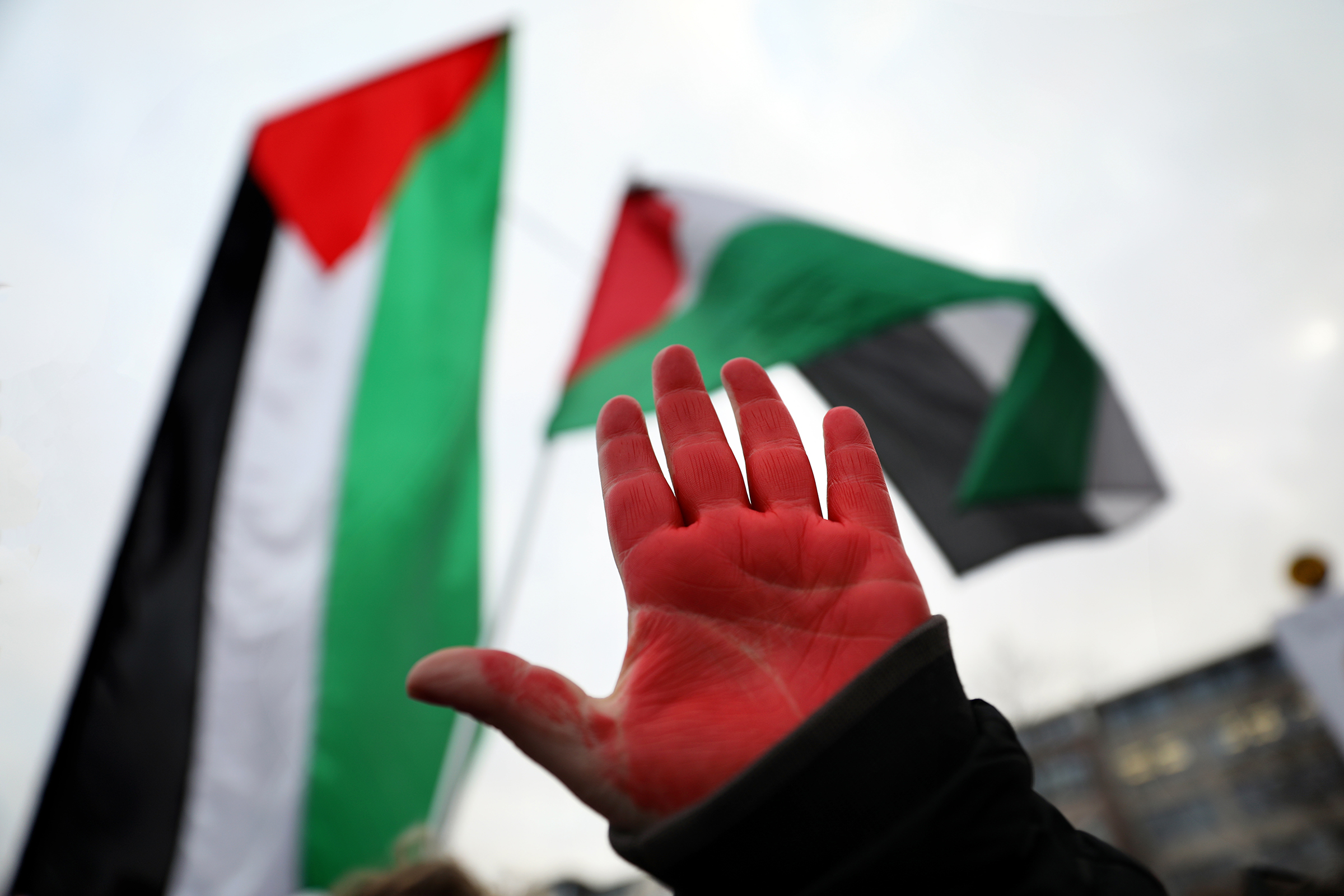In today’s near-constant news cycle on Gaza, Palestinians seem to die at the hands of an invisible executioner. Palestinians are shot dead. Palestinians starve. Palestinian children are found dead. But where is there accountability? Palestinians die, they aren’t killed, as if their death is a fault of their own.
The obfuscation of responsibility is facilitated by a structure often overlooked since grade school: grammar. At this moment, grammar has the indelible power to become a tool of the oppressor, with the passive voice the most relied-upon weapon of all.
When I was young, teachers scolded me for using the passive voice—they wanted my writing to be precise and direct. Instead, my sentences always seemed to protect those who performed the actions. Back then, the fact that my sentence structure obscured accountability didn’t bother me. But I know better now. As a Palestinian American, with refugee grandparents who survived the Nakba, I’m confronting the occupation back home from the safety of my apartment in America. Over the years, I’ve combed through headlines searching for the active voice in a sea of passivity. I need those who commit actions, those who hold agency, to be named. I need Israel and its occupational forces to be named.
The passive voice often focuses on the recipient of the event, not the doer. In the news today, I see only the passive voice: “A group of Palestinian men waving a white flag are shot at,” and I can’t help but hear the voices of my past English teachers ask, “But who ‘shot’ these men?” Accountability is not just vague; it’s altogether missing.
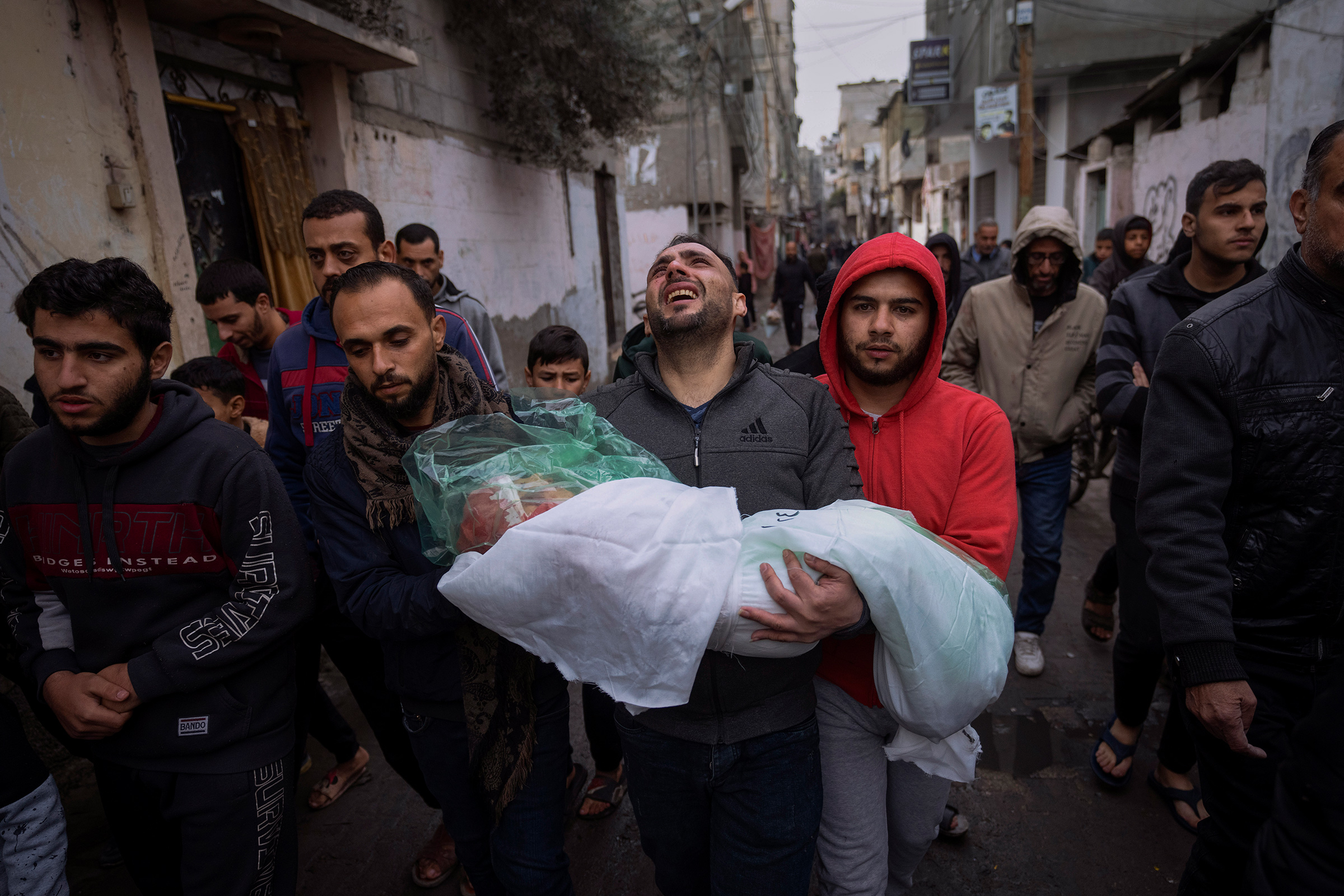
I learned most acutely about the power of language to silence and erase in graduate school while auditing an undergraduate course on Israel. In a class of 25 people, I was one of two Palestinians. The rest of the class consisted of students who either self-identified as proud Zionists or Zionists who felt confused.
The professor, a Jewish Israeli, reminded me of my grandfather with his bushy eyebrows and thick accent—a soothing familiarity at first.
But that familiarity didn’t last. By the end of the first month, the class was split on the definition of “ethnic cleansing”—not only how to define it but who, in terms of the subject doing the action, can be charged with this human rights violation.
The professor called our attention to his use of the term “ethnic cleansing” in his own writing. He wrote that around 750,000 Palestinians were displaced in 1948, an act that today would be considered ethnic cleansing. At first read, this statement seemed bold—he may not have named the Nakba, but his writing gestured toward violence. Even so, his examination felt sanitized. Palestinians “were displaced,” he wrote. But there was no mention of who did the displacing.
After reading part of the article out loud, a girl who had been fidgeting in her seat said it couldn’t be.
“What couldn’t be?” my professor asked.
“Ethnic cleansing. Because it’s what happened in the Holocaust, so we can’t be charged with this,” she replied. Another student cut in. He qualified by referring to himself as a critic of Israel. “There’s a distinction between occupation and ethnic cleansing,” he announced. “It’s an issue of structural power and systematic violence—what happened in 1948 was not ethnic cleansing.”
“By whom?” I finally asked, interrupting the flow of conversation.
“By whom, what?” the professor said.
“Who displaced 750,000 Palestinians?” Silence.
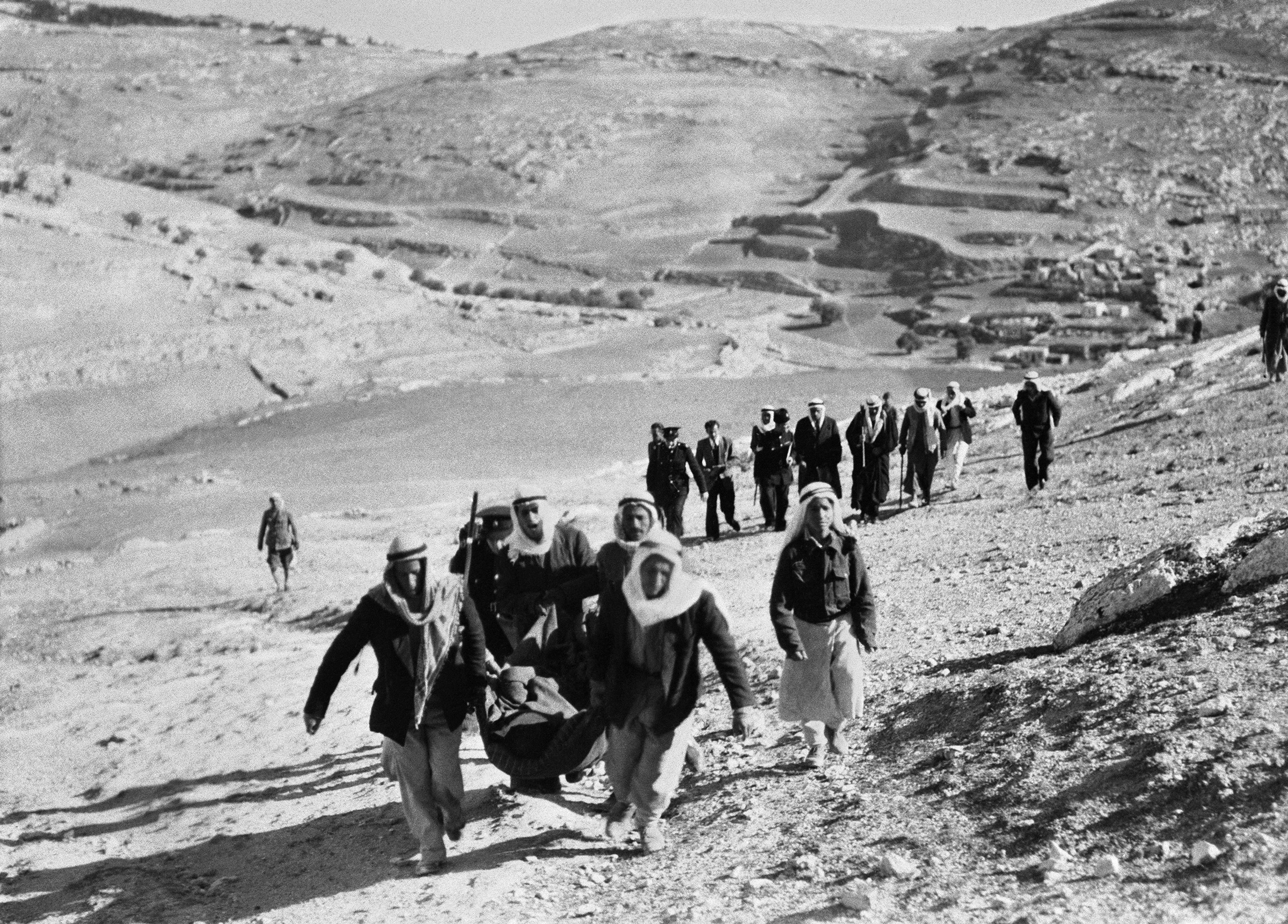
A boy behind me got the last word. “Intent is what makes it ethnic cleansing,” he said. “It doesn’t sound like this was intentional. It might look like it, but it’s different.” The professor nodded, mumbling, “intent” to himself.
In a 2023 interview with Palestinian scholar Rashid Khalidi published in The Intercept, Khalidi shared that although Israel’s recent military assault on Gaza may seem unprecedented it, unfortunately, aligns with Israel’s long-standing doctrine rooted in colonial, British counterinsurgency strategies. Khalidi said that this doctrine is characterized by an “absolute merciless attack on the enemy, delivering crushing blows.”
Read More: Hamas Built Tunnels Beneath My Family’s Home in Gaza. Now It Lies in Ruin
“This is how Britain ruled the world,” Khalidi went on to explain. “It was an empire of violence. And that strategy of overwhelming violence, when challenged, has been Israel’s strategy ever since.” This history of violence can easily be traced back to the foundation of the Zionist movement. The first Israeli prime minister, David Ben-Gurion, wrote to his son in 1937: “The Arabs will have to go, but one needs an opportune moment for making it happen, such as a war.”
I saw intent in these words, but others in my class did not. So I kept searching, looking through the archive to help me piece together what parts of history I was missing. I found Joseph Weitz, director of the Jewish National Fund’s Lands Department, who wrote that there was no solution other than to transfer all Arabs from Palestine—who were the overwhelming majority in the region—into neighboring countries so that no Palestinian villages would remain. But when I shared these findings in class, they were brushed aside. “This isn’t intent,” a student said. “You can’t prove intent with a few peoples’ letters and actions.”
By the second month of class, I spent most of my time picking at my cuticles, fiddling with them until they drew blood, as students argued over when the words “Palestine” and “Palestinian” came into existence. Finally, the professor changed the subject, unable to convince some in class that “Palestine” was a place before Israel’s existence. He went on to discuss how Zionism could be considered a colonial project. A student behind me interrupted the lecture and said, “It’s not like they were coming in like other imperial powers and raping and killing immediately.”
My hand with its bloody cuticles shot up, eager to call out the absurdity of the comment. But my professor had started calling on me less and less, avoiding eye contact when possible and acknowledging me only in nods. My consistent stream of comments and questions perhaps disturbed the delicate balance of the Israeli-Palestinian conflict that he so cautiously wanted to maintain. He had become passive; I had been forced into passivity in turn.
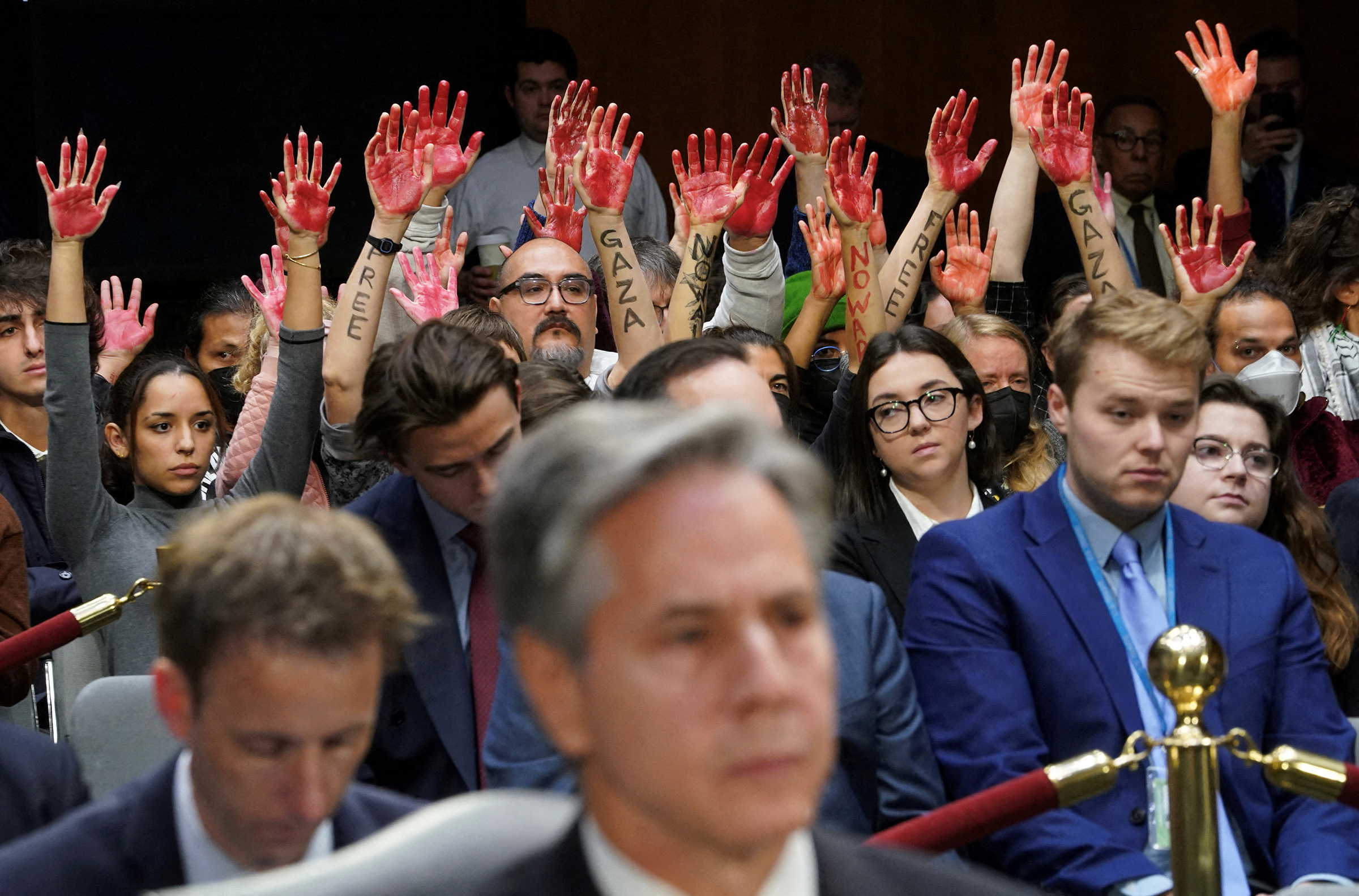
“Who started it first?” another student asked in my row, ignoring my raised hand.
“Which time did ‘who start what?’” The professor asked.
“In 1947,” she said, “if Zionism really is a ‘colonial project,’ who started it first?”
“In 1947, the Arabs were upset by the U.N. partition lines. There were Palestinian uprisings,” he said.
“They retaliated,” I interjected, angry again at the empty spaces left in the professor’s response—as if Zionism and its goals had no role in why there were Palestinian uprisings. In a 2002 report completed by Fairness and Accuracy in Reporting (FAIR), researchers found that during the Second Intifada the word “retaliation” was used 79% of the time to describe Israeli violence against Palestinians in American news outlets. Meanwhile, Palestinian violence was characterized as “retaliation” only 9% of the time. Palestinians “attacked” or “threw rocks” or, at best, there were Palestinian “uprisings” that seemed to spring from the ground without any explanation of the pressure that premeditated why the surface cracked in the first place.
“Retaliation” suggests a need to defend oneself because safety is on the line. “Retaliation” empowers some in their violence while reprimanding others.
I wanted to say all this, but the professor put his palm in the air, a visible stop sign in my direction, and asked me to raise my hand if I wanted to engage. So I continued to raise my hand, which remained raised until the end of class. And I wondered, if there were a stone nearby, would I have thrown it?
Read More: The Power of Changing Your Mind
After class, the professor pulled me aside and told me, “As an auditor, it’s best you don’t participate. I sympathize with the Palestinians, but it’s necessary you don’t add to the discussion.” He followed up this conversation with an email, reaffirming his desire for me to remain silent. Perhaps he didn’t intend to silence me, one of two Palestinians in the course. Perhaps he intended only to follow university policy, a policy I later learned was up to the discretion of each professor. Perhaps intent didn’t apply here at all, just as it couldn’t be applied to those who ethnically cleansed Palestinians during the Nakba.
While writing tedious essays in high school, I didn’t care that I used the passive voice. I didn’t care because our writing assignments were often divorced from broader socio-political contexts. The violence of protecting those accountable versus those left bearing the burden of the violence didn’t yet touch me or my body. A privilege, I know. The calculated use of language against Palestinians didn’t yet anger me, either, even though blatant anti-Arab racism happened in front of me with growing frequency after 9/11. It felt as though this version of racism was acceptable, even expected.
I learned history as if its problems were a thing of the past. This was purposeful. History preserved in textbooks relies on meticulous and insidious language to shape narratives. In the same month I sat in class and listened to students negotiate accountability and qualify their feelings toward ethnic cleansing, a seven-year-old Palestinian boy, Rayan, died in the West Bank. Did he die or was he killed? It depends on which headline you read—some headlines stated that he was simply “mourned” by his community.
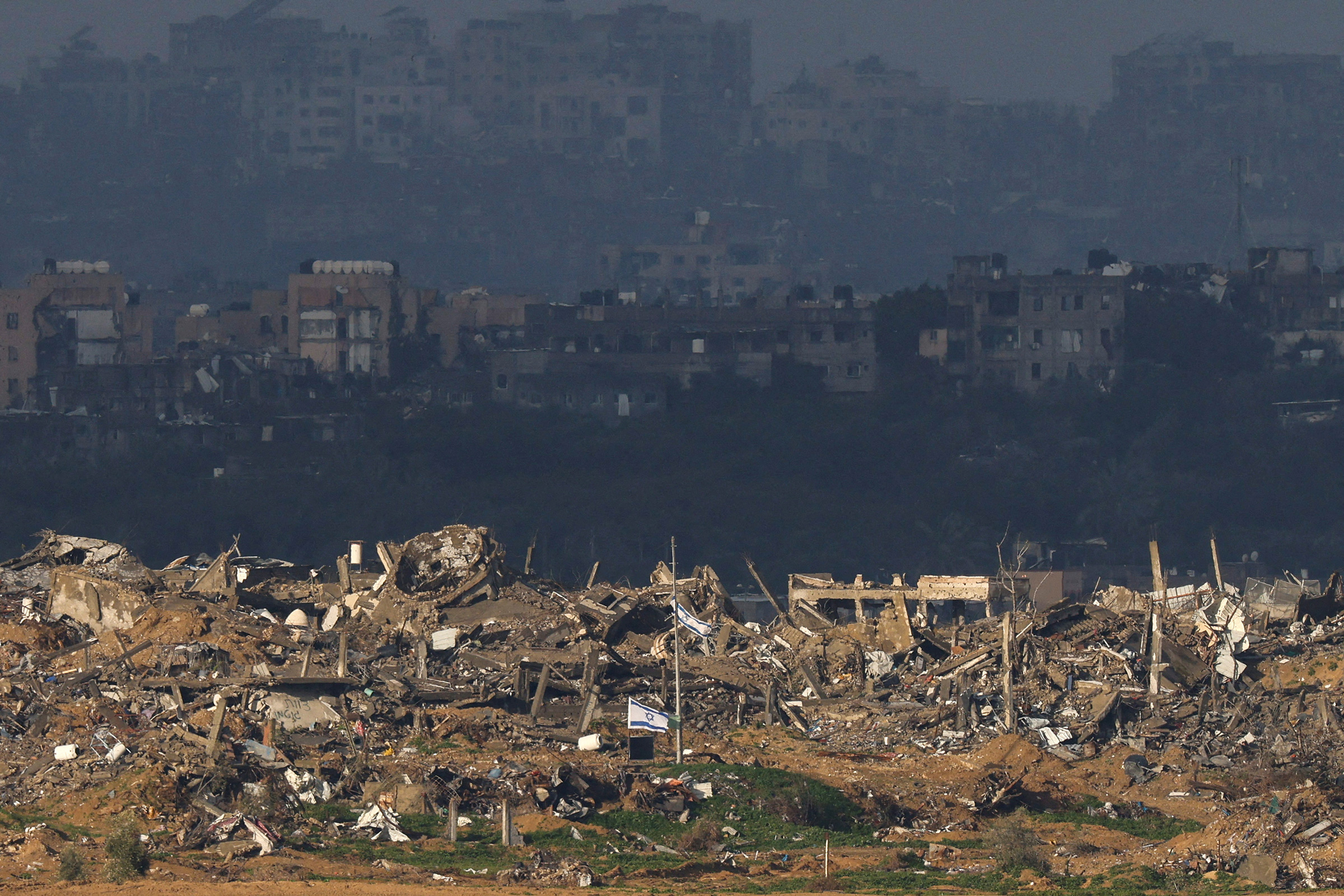
As I searched for accountability for Rayan, I heard my teachers’ voices echo from the past: “Who did the action?” Paramedics say he had a heart attack though pediatric specialist, Dr. Mohamed Ismail, claimed Rayan had no previous medical conditions that would point to an early cardiac arrest. “The most probable scenario of what happened is that under stress, he had excess adrenaline secretion, which caused the increase of his heartbeat, ” Ismail said.
We do know this: right before he died, Israeli occupation forces chased the boys home, banged on their door, and threatened to come back at night and arrest the boys, ages 7, 8, and 10. When Rayan saw the soldiers at his door, he tried to run away but, instead, dropped dead. Times of Israel published the headline, “Palestinian boy, 7, dies in disputed circumstances amid IDF activity near Bethlehem.”
“What are the disputed circumstances?” I hear my English teachers press on in my mind.
There were rocks. No, stones. They say stones. They were being thrown.
“Who did the action? Who started it?”
One of Rayan’s older brothers threw a stone at a soldier.
In the active voice, “A seven-year-old Palestinian boy’s heart killed him” is how the headlines could have read.
“The heart is not to blame,” I hear my teachers say.
What does it matter when language can minimize suffering at its best and erase it altogether at its worst?
As my graduate studies progressed, professors repeatedly told me that no one’s hands were clean in this “complicated” history. They felt my writing and my questions were too exacting in ways that perhaps made them uncomfortable. “This history is full of gray areas,” they’d say. They wanted my writing to be vague, passive. They wanted my writing to speak to the “complicated” nature of this conflict—but Palestine has never been that complicated to me.
The word “complicated” is often used to describe the occupation in Palestine, a word that insists that occupation is untouchable—Palestine’s history is too complex, there are too many moving parts, it’s a puzzle that can never be solved. But this word is condescending—a distraction. It wants us to feel small, worthless, and petty in our investigation. It demands power structures remain in place, allowing some to speak while requiring others to stay quiet. But what’s happening today in Palestine against the Palestinian people is not complicated. It’s a revolting violation of human rights. It is active and precise. Palestinians are killed or, if they’re lucky, violently evicted from their homes. The question—by whom?—is often never raised. Palestinian schools, hospitals, community centers, historic holy spaces, safe zones are bombed; their resources depleted; people are starving—as if all of this happened devoid of context or responsibility for those who hold power.
So let me amend the above statements, as my former English teachers would have requested, and put them into the active voice: Israel bombs Palestinian schools that house sacred archives. Israel bombs hospitals with necessary aid. Israel bombs community centers and historic holy spaces that have stood for centuries. Israel depletes Palestinian resources. Israel bombs Rafah, housing over 1 million displaced Palestinians, after claiming it a safe zone. Israel is starving Gaza.
More Must-Reads from TIME
- Cybersecurity Experts Are Sounding the Alarm on DOGE
- Meet the 2025 Women of the Year
- The Harsh Truth About Disability Inclusion
- Why Do More Young Adults Have Cancer?
- Colman Domingo Leads With Radical Love
- How to Get Better at Doing Things Alone
- Michelle Zauner Stares Down the Darkness
Contact us at letters@time.com
